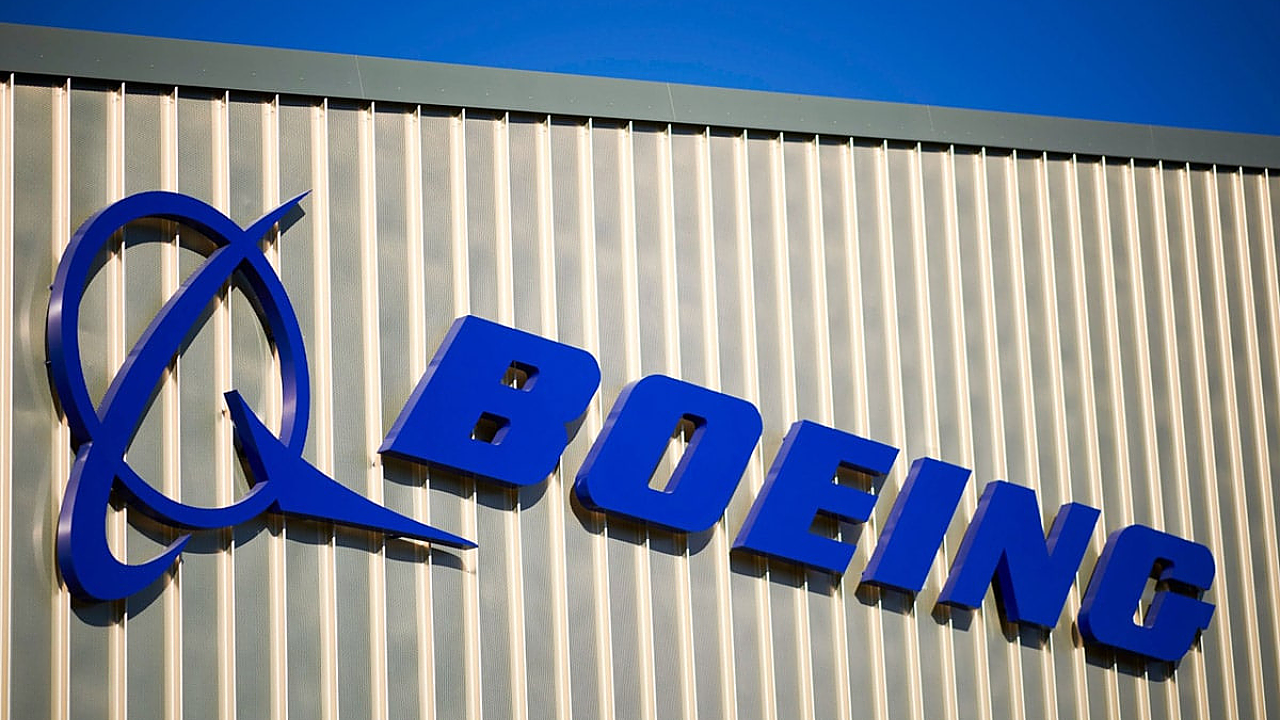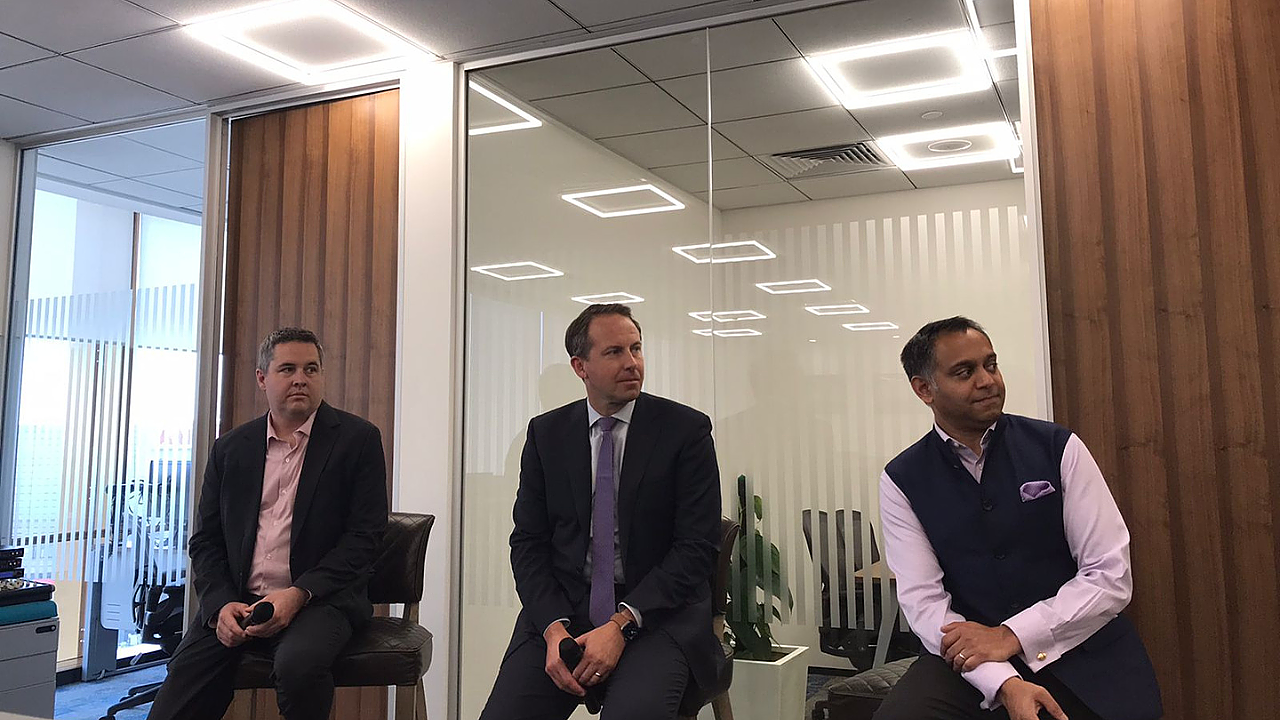
“There is a huge sales potential in the Indian market when it comes to civil aviation,” said Ryan Weir, Vice President, Sales & Marketing, India and South Asia, Boeing, at a press conference held at the newly inaugurated Boeing Global Support Centre in Gurugram. He added that India is one of the world's largest and fastest-growing markets, growing at about 8% annually.
Weir noted that as per the company’s outlook, India will need around 2,200 aircraft in the next 20 years, of which 1,400 are unsold. He added that while India has an average of 2.3 crore people travelling by train and three lakh air passengers daily, a 1.5% shift from rail to air travel will double the number of air passengers.
“This in combination with the growing middle class, growing GDP across the country, are real drivers for the growth for the domestic and international aviation market in India,” the sales VP noted.
Salil Gupte, President, Boeing India, noted that the company has been committed to the Indian aviation industry for over seven and a half decades now, aiming to continue with the commitment. Terming the Indian market as the largest site outside the US for Boeing, he noted that for the company, India has a capability like no other as much as a market like no other.
While the growth in the market is tremendous, Boeing also has a huge supplier base in India. Notably, the airframer exports products and services worth $1 billion annually, contributing to about two-thirds of the company’s global manufacturing. Gupte noted that every single Boeing airplane has some parts manufactured in India. “A significant amount of engineering that we do in India, whether it's customer configuration engineering, support for flight tests or design engineering, much of the work is done in our engineering centres in Bangalore and Chennai,” he added.
However, while the exports of products and services for the company from India are high, the Boeing India President noted that as far as the final assembly of the aircraft is concerned, it will take some time before the country, along with the nearby markets reach a certain threshold for aircraft requirement.
Global Support Centre: A Significant Step Towards Commitment To India
The Boeing India team boasts 5,000 members and another 13,000 people associated with the company through its supplier base of 300 members, of which 75 of them are MSMEs. The new global support centre in India is an addition to the India team.
Situated at a strategic location close to the customers, the centre aims to provide customised operational efficiency and safety improvement projects for its airline customers, civil aviation regulatory bodies and other industry stakeholders.
Weir noted that in addition to bringing in the sales and marketing team to the new centre that will manage both the product and services side, the aim is to bring at least 20 of the flight operations engineers and maintenance engineers to support the customers.
“We want to support our customers in India. Typically we've supported customers either based out of Seattle or from Singapore. This new centre is an important step of getting the support system in the country closer to the customers, making sure that we're doing everything we can to support efficient, profitable operations for the airline,” the VP added.

In addition to supporting the customers, the members at the new centre will also partner with the Ministry of Civil Aviation (MoCA) and the Directorate General of Civil Aviation (DGCA) to take up initiatives that are important to the customers and advance those to make this whole industry gets even better, he added.
Notably, Boeing received a huge order from Air India this February for 190 737 MAX, 20 787 Dreamliner and ten 777X airplanes with 50 additional 737 MAXs and 20 787-9s. Earlier, Akasa Air placed an order for 72 737 Max aircraft.
Weir noted that the order book is a major reason for Boeing to set up its global support centre in India. He added that more than sales, it's more about setting up the infrastructure for the aircraft that the two airlines have ordered and ensuring those aeroplanes are delivered and deployed efficiently within the country.
With the order book, the aircraft maker predicts that India will require nearly 31,000 pilots and 26,000 technicians in the next 20 years, noted Gupte, while Weir added that the new centre will be crucial in collaborating with the stakeholders to identify and work on the solution as the number of aircraft increases.
India: A Unique Proposition?
While the Indian market is seeing unprecedented growth in the aviation space, while speaking to Mobility Outlook, David Schulte, MD, Marketing, Boeing, noted that similar growth is being witnessed in other South-East Asian markets, including Indonesia, Vietnam, Thailand and Malaysia. However, he noted that India is still the third-largest aviation market and will remain so for the foreseeable future.
Schulte noted that while the growth rate and market opportunities are high in the country, India is also one of the challenging markets. He added that there are three major concerns for the Indian aviation market, including high fuel prices. He noted that while globally, aviation fuel prices have fallen by 30%, in India, they have gone up b 11%.
Additionally, India is a very price-sensitive market, making it difficult for airlines to operate in India. “While there has been a lot of discussions around the rising air ticket fares in India, we feel it's good for the health of the local aviation market,” he added.
Another key challenge for the market is the transaction in USD. About 70% of the transactions are carried out in USD; therefore, the marketing MD noted that the fluctuating conversation rates and the rising rates add to the cost of operations.
Also Read